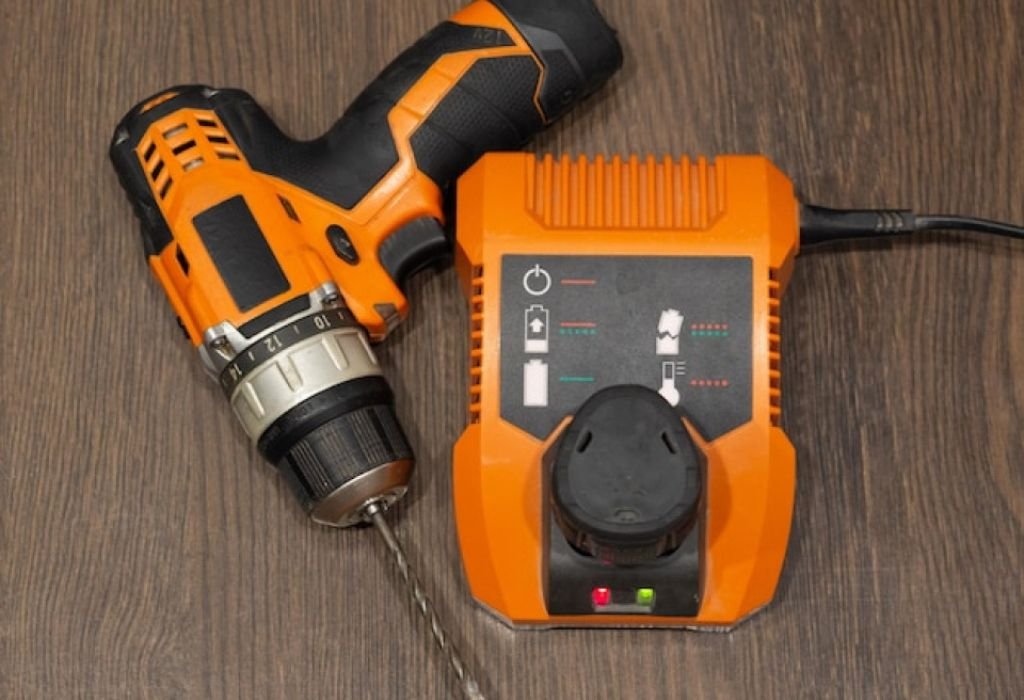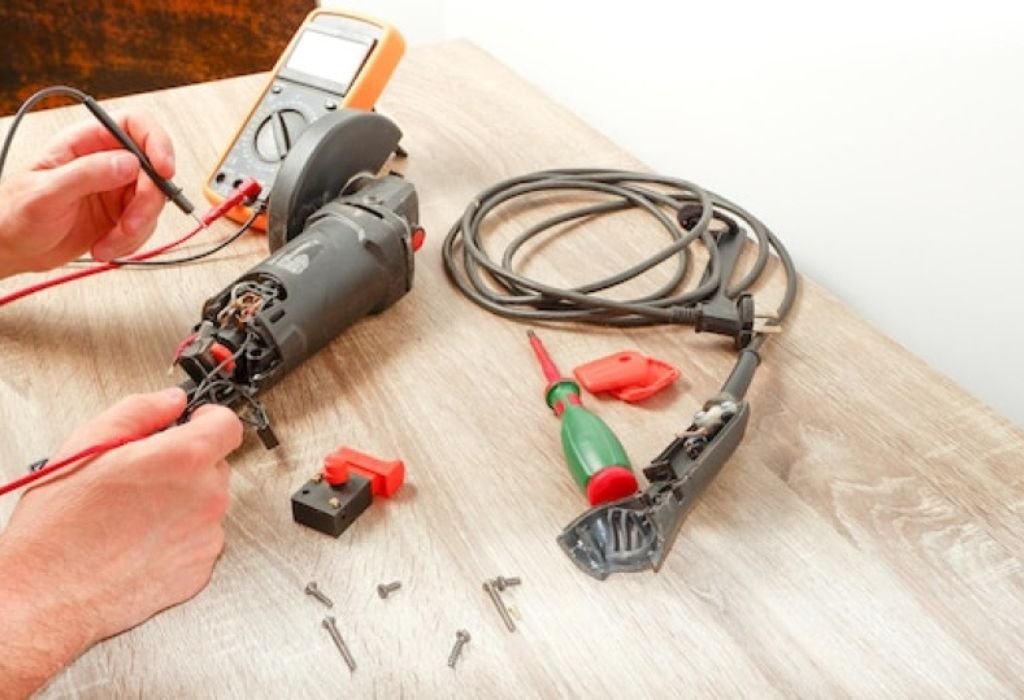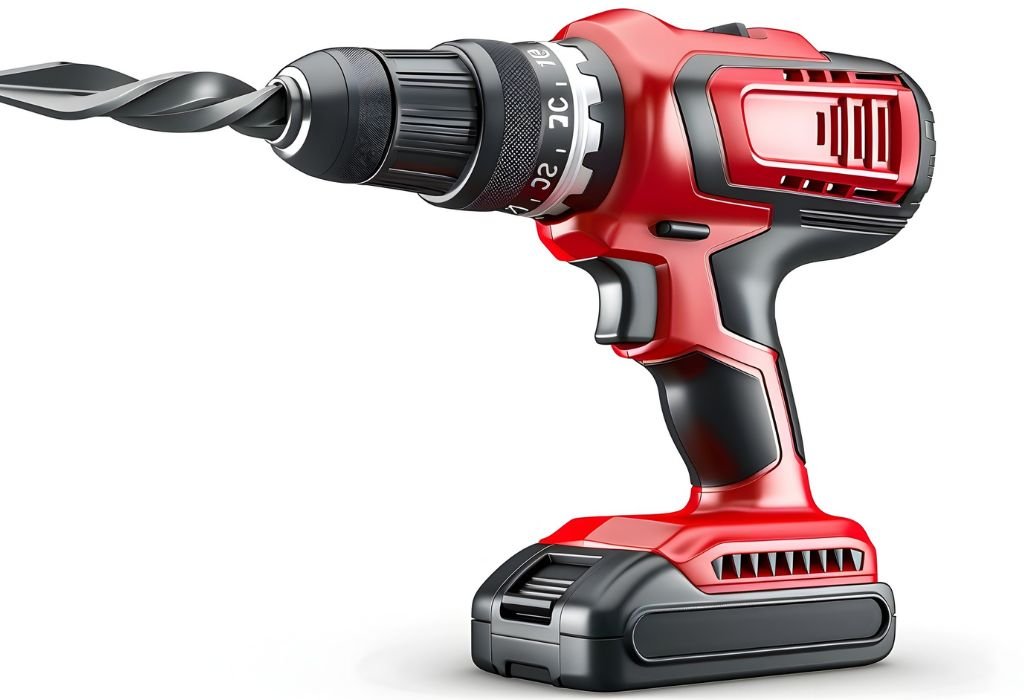Few things are more frustrating during a project than having your cordless drill stop working unexpectedly in the middle of a task, leaving you unsure of what went wrong.
Many DIYers and professionals alike ask why does my cordless drill keep stopping, often not realizing that the issue could come from several different causes rather than a single fault.
Sometimes the problem is as simple as a weak or improperly charged battery, while in other cases it may involve worn-out components inside the motor or electrical system.
Ignoring these problems not only interrupts your projects but can also lead to permanent damage that shortens the lifespan of your drill.
Because cordless drills are used for such a wide variety of applications, the reasons they fail can vary between light household models and heavy-duty professional tools.
Understanding the most common causes can help you troubleshoot effectively, avoid unnecessary repairs, and even prevent future breakdowns.
According to Statista, more than 15 million cordless drills are sold worldwide every year, which means countless users eventually encounter the problem of drills stalling or shutting off.
This guide will explain the most likely reasons your cordless drill keeps stopping and provide practical solutions to keep your projects running smoothly.
Common Battery-Related Issues

Battery problems are the most common reason why a cordless drill stops during use.
Low charge, old age, or improper handling all reduce battery performance.
If your drill suddenly cuts off, the first step is always to check the charge level.
Many times, simply recharging or swapping batteries solves the issue.
Old batteries gradually lose their ability to hold power.
After years of use, they can no longer provide enough current for heavy tasks.
Loose or dirty battery contacts may also cause intermittent power.
Cleaning the terminals ensures better conductivity.
Extreme temperatures, whether too hot or too cold, reduce battery efficiency.
Storing batteries properly helps avoid unnecessary failures.
Can a weak battery stop my drill?
Yes, insufficient charge interrupts power.
Do old batteries work poorly?
Yes, they lose capacity over time.
Can loose connections cause stopping?
Yes, unstable contacts cut off power.
Do temperature changes affect batteries?
Yes, cold and heat reduce efficiency.
Should I replace or recharge first?
Always recharge before considering replacement.
Motor and Overheating Problems
Overheating is another frequent cause of cordless drills shutting down.
When motors work too hard, built-in safety systems cut power.
Heavy drilling through tough materials often overloads the motor.
The drill stalls to protect itself from permanent damage.
Motor brushes gradually wear out with regular use.
Worn brushes reduce efficiency and cause unexpected shutdowns.
Blocked ventilation slots trap heat inside the drill.
Cleaning vents regularly prevents overheating.
Continuous heavy use without breaks increases failure risk.
Allowing short cooling periods extends drill life.
Why does my drill stop under pressure?
The motor is overloaded and shuts off.
Can overheating shut it down?
Yes, safety features cut the power supply.
Do worn brushes cause problems?
Yes, they reduce motor performance.
Is ventilation important?
Yes, blocked vents cause overheating.
Can rest periods help?
Yes, cooling prevents shutdowns.
Chuck and Bit Issues
The chuck plays an important role in holding drill bits securely.
If it becomes loose, the bit slips and causes interruptions.
Worn-out chucks lose their grip strength.
This results in frequent stalling or uneven drilling.
Using dull or damaged bits increases resistance.
The motor strains harder and eventually stops.
Incorrect bit sizes also overload the drill.
Always match bits with chuck and material requirements.
Dirty or clogged chucks reduce performance over time.
Cleaning ensures smooth operation.
Can a loose chuck stop the drill?
Yes, slipping halts drilling.
Do dull bits cause stalling?
Yes, they increase strain on the motor.
Should I match bit size?
Yes, using proper bits prevents stalling.
Does chuck maintenance matter?
Yes, cleaning improves grip and performance.
When should I replace the chuck?
If it no longer holds bits securely.
Trigger and Electrical Problems

The trigger switch is responsible for delivering power to the motor.
If it malfunctions, the drill cuts off unexpectedly.
Dust and dirt buildup inside the trigger cause interruptions.
Cleaning helps restore smooth operation.
Internal wiring may loosen or break over time.
This leads to sudden shutdowns during use.
Moisture exposure causes short circuits.
Keeping tools dry protects sensitive electronics.
Some modern drills have sensors that fail with age.
This results in inconsistent power control.
Can a bad trigger cause stopping?
Yes, it interrupts power flow.
Do drills stop from wiring issues?
Yes, loose wires cause shutdowns.
Does dust affect performance?
Yes, dirt clogs electrical contacts.
Can moisture damage drills?
Yes, it causes shorts and malfunctions.
Are sensors common in drills?
Yes, advanced models often include them.
User-Related Mistakes
Improper handling is another reason drills keep stopping.
Applying too much pressure stalls the motor.
Using the wrong speed settings increases the risk of stalling.
Different materials require specific drilling speeds.
Lack of regular maintenance causes premature failures.
Dust, dirt, and wear reduce performance.
Overloading drills with tasks beyond their rating is common.
Light-duty drills cannot handle masonry or heavy construction.
Improper charging routines shorten battery life.
Always follow manufacturer guidelines.
Does pushing harder help?
No, it only stalls the drill.
Is speed selection important?
Yes, materials need different settings.
Can poor maintenance cause stopping?
Yes, neglect leads to failures.
Do users overload drills?
Yes, heavy tasks damage light drills.
Should I fully charge before use?
Yes, always charge properly.
Brand-Specific Issues and Warranties
Not all cordless drills are built equally.
Lower-end models often fail sooner due to weaker components.
Some brands have recurring faults in certain models.
These include faulty triggers or poor battery performance.
Advanced drills sometimes suffer from firmware or sensor issues.
This makes them stall even without obvious damage.
Checking warranty coverage is essential.
Manufacturers often replace faulty drills at no cost.
Customer support can provide brand-specific troubleshooting tips.
This saves time and effort in repairs.
Do brands affect reliability?
Yes, quality varies greatly.
Can firmware cause stopping?
Yes, smart drills sometimes glitch.
Do cheaper drills fail sooner?
Yes, due to weaker construction.
Should I check warranty?
Yes, repairs may be free.
Is customer support useful?
Yes, they often resolve issues quickly.
How to Troubleshoot and Fix the Problem

Start with the simplest solution by checking the battery.
Recharge or replace it if power is low.
Inspect the chuck and drill bits.
Tighten loose chucks and replace worn bits.
Clean the trigger and vents to remove dust.
This improves airflow and electrical contact.
Test the drill under light load before tackling harder materials.
This shows if the problem persists.
Seek professional repair if the drill still stops.
Sometimes replacement is more cost-effective than repair.
What’s the first step in fixing?
Check the battery and recharge.
Can I fix it myself?
Yes, for minor issues like bits or dust.
When call a professional?
If wiring or motor problems are suspected.
Do all drills need servicing?
Yes, occasional maintenance helps.
Is replacement better than repair?
Sometimes, especially for older tools.
Conclusion
A cordless drill that keeps stopping usually suffers from one of a few common problems.
Batteries, motors, chucks, triggers, or user habits are often to blame.
Most issues can be prevented with proper maintenance.
Regular cleaning, correct use, and careful charging extend tool life.
When problems do occur, start with simple checks before assuming the drill is broken.
Often, a battery swap or bit change solves the issue.
For persistent problems, rely on warranties or professional repairs.
This ensures safe and reliable operation.
By understanding the causes of drill stoppage, you can keep your projects running smoothly.
With the right care, your cordless drill will serve you effectively for years.

I’m John F. Nicholas, the founder, lead writer, and drill enthusiast behind 101drill.com. With years of hands-on experience in power tools and DIY projects, I created this platform to share practical knowledge, expert tips, and real-world insights to help others master the art of drilling.
